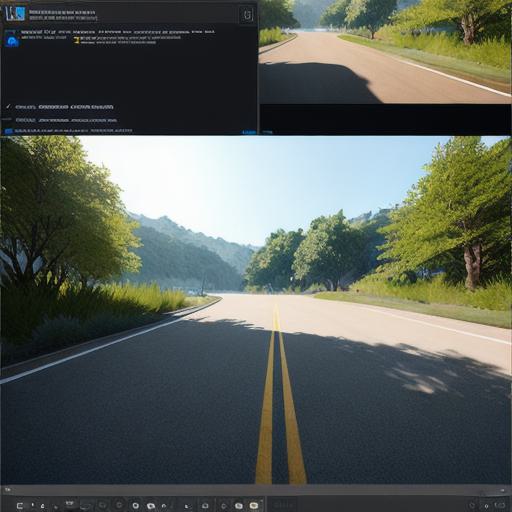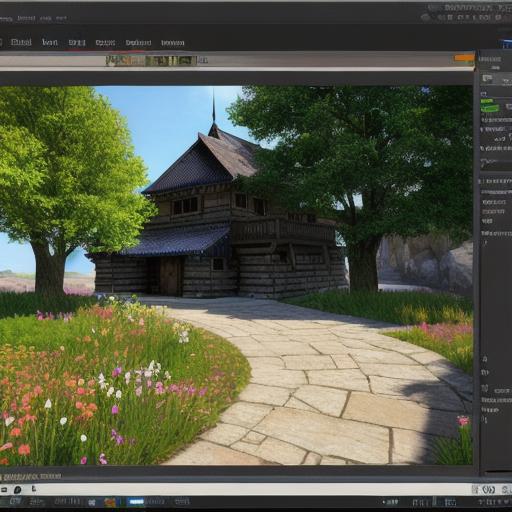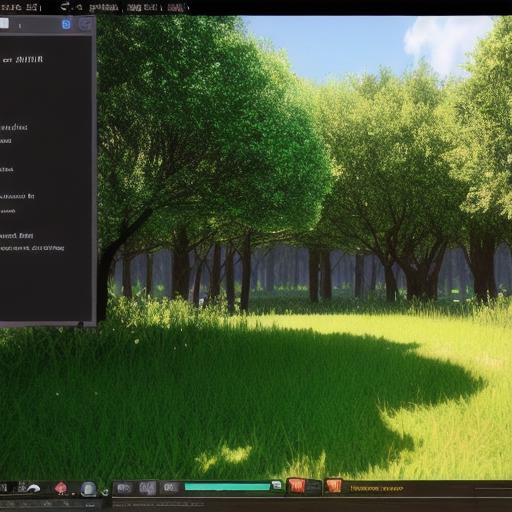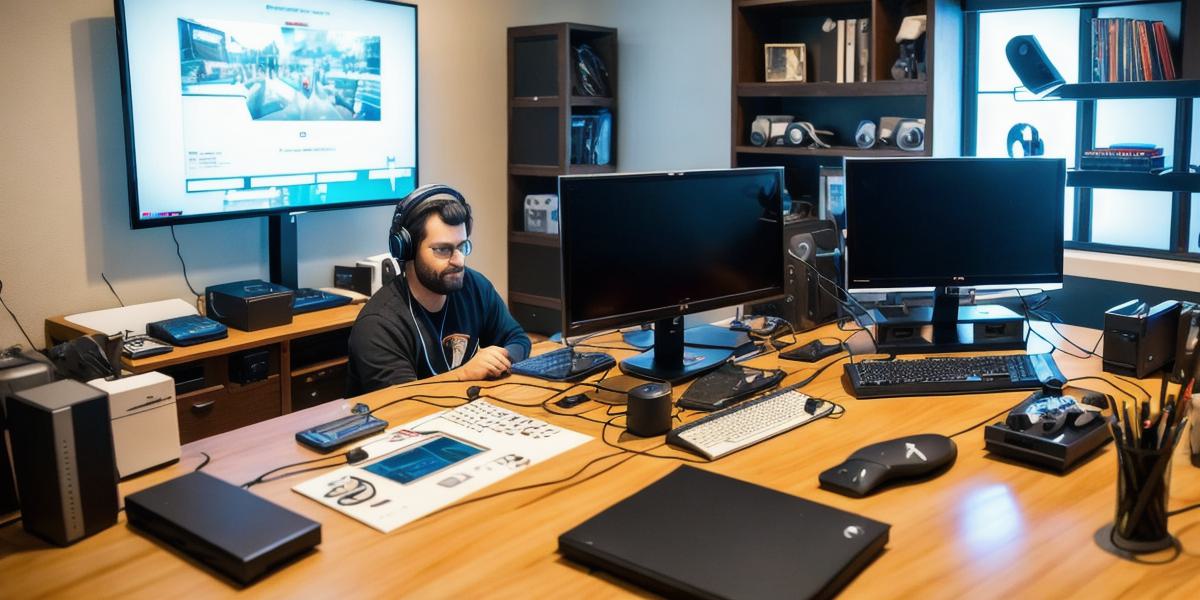Android has become one of the most popular mobile operating systems in recent years, with billions of active users worldwide. This makes it an attractive platform for game developers looking to reach a wide audience. However, creating games for Android can be a complex process that requires specialized skills and tools.
Game development kits (GDKs) are software frameworks that provide developers with the necessary tools to create Android games. These kits typically include development environments, code libraries, and debugging tools. On the other hand,
Unity
is a cross-platform game engine that allows developers to create games for multiple platforms, including Android.
In this article, we will explore both GDKs and
Unity
in detail, looking at their features, capabilities, and advantages and disadvantages. We will also examine some real-world examples of games developed using these tools and hear from game developers about their experiences with GDKs and
Unity
.
Game Development Kits (GDKs)
Android Studio
Android Studio is the official integrated development environment (IDE) for developing Android apps, including games. It provides a comprehensive set of tools and features for creating, testing, and debugging Android applications. Some of the key features of
Android Studio
include:
- Code completion and refactoring tools to help developers write cleaner and more efficient code
- Debugging tools to help identify and fix bugs in the application
- A built-in emulator that allows developers to test their apps on a virtual device without needing a physical device
- Support for a wide range of Android libraries and frameworks, including GDKs
Android Studio also provides support for Android Jetpack, which is a set of libraries and tools designed to help developers build high-quality, scalable Android applications. Some of the key features of Android Jetpack include:
- Architecture Components, which provide a set of libraries for building robust and maintainable Android apps
- Lifecycle Components, which provide a set of libraries for managing the lifecycle of Android components
-
ViewModel, which provides a way to manage data in Android applications
Android NDK
The Android NDK (Native Development Kit) is a toolset that allows developers to write parts of their Android application in C/C++ and use those parts with the Java-based part of the application. This can be useful for performance-critical code or code that needs to interact closely with native APIs and libraries. Some of the key features of the Android NDK include:
- The ability to write parts of the application in C/C++, which can be faster and more efficient than Java
- Integration with Java, which allows developers to use the Java-based part of the application with the C/C++ code
- Support for a wide range of Android APIs and libraries, including GDKs
Unity
Unity is a cross-platform game engine that allows developers to create games for multiple platforms, including Android. It provides a comprehensive set of tools and features for creating, testing, and deploying games across different devices and platforms. Some of the key features of
Unity
include:

- A powerful scripting language that allows developers to write custom behavior for their games
- Support for 2D and 3D graphics, including advanced rendering techniques like shaders
- Integration with a wide range of third-party plugins and tools, including GDKs
- Built-in support for real-time multiplayer gameplay
- Cross-platform deployment capabilities, allowing developers to release their games on multiple platforms with a single build process
Unity also provides a set of development tools, including the
Unity
Hub, which is a web-based application that allows developers to manage their projects and collaborate with other team members. The
Unity
Hub includes features like version control, project management, and real-time collaboration on code and assets.
Case Studies
PUBG Mobile
PUBG Mobile is a hugely popular mobile battle royale game that was developed using
Unity
. The game has over 1 billion downloads and has generated billions of dollars in revenue for its developers, Tencent.
One of the main advantages of using
Unity
for PUBG Mobile was its cross-platform capabilities. The game was designed to run seamlessly on multiple platforms, including iOS and Android, allowing Tencent to reach a wider audience. Additionally,
Unity
‘s robust features made it possible to create a complex, multiplayer game with high-quality graphics and smooth gameplay.
Angry Birds
Angry Birds is another popular mobile game that was developed using
Unity
. The game has over 2 billion downloads and has generated hundreds of millions of dollars in revenue for its developers, Rovio.
One of the main advantages of using
Unity
for
Angry Birds
was its ease of use. The game’s developers were able to quickly prototype and develop the game using
Unity
‘s intuitive tools and features. Additionally,
Unity
‘s cross-platform capabilities allowed the game to be released simultaneously on multiple platforms, including iOS and Android.
Clash of Clans
Clash of Clans is a popular strategy game that was developed using
Unity
. The game has over 500 million downloads and has generated billions of dollars in revenue for its developers, Supercell.
One of the main advantages of using
Unity
for Clash of Clans was its ability to handle complex real-time multiplayer gameplay. The game features a wide range of strategic elements, including base building, unit deployment, and resource management, all of which required robust and scalable real-time synchronization across multiple devices and players.
Minecraft Earth

Minecraft Earth is a mobile augmented reality game that was developed using
Unity
. The game has over 15 million downloads and has been praised for its innovative use of AR technology to create an engaging gaming experience.
One of the main advantages of using
Unity
for
Minecraft Earth
was its support for ARKit and ARCore, which are the two most popular AR development platforms. This allowed developers to take advantage of the latest AR technologies on both iOS and Android devices. Additionally,
Unity
‘s built-in support for real-time multiplayer gameplay made it possible to create a social gaming experience that spans multiple players and locations.
Real-World Examples
Google Stadia
Google Stadia is a cloud-based gaming platform that allows players to stream games directly to their devices, without the need for a powerful gaming console. The platform uses
Unity
as its primary game engine, allowing developers to create high-quality games that can run on a wide range of devices and internet speeds. Some of the key features of
Google Stadia
include:
- Low latency gameplay, with fast load times and smooth performance
- Cross-platform support for multiple devices, including PC, laptop, tablet, smartphone, and TV
- Integration with a wide range of third-party services and tools, including GDKs
Google Stadia is still in its early stages, but it has the potential to revolutionize the way we play games, making them more accessible and affordable for everyone.
Pokémon Go
Pokémon Go is a popular augmented reality game that was developed using
Unity
. The game has over 1 billion downloads and has been praised for its innovative use of AR technology to create an engaging gaming experience. Some of the key features of
Pokémon Go
include:
- Real-time augmented reality gameplay, with players hunting for virtual creatures in their real-world environment
- Integration with a wide range of third-party services and tools, including GDKs
- Cross-platform support for multiple devices, including PC, laptop, tablet, smartphone, and AR glasses
Pokémon Go was a massive success when it was released in 2016, and it continues to be popular today. The game’s innovative use of AR technology has inspired many other developers to explore this new frontier of gaming, paving the way for even more exciting and immersive experiences in the future.
Summary
In conclusion, both GDKs and
Unity
offer powerful tools and features for creating games across multiple platforms. While GDKs are better suited for developing Android-specific games,
Unity
is a cross-platform engine that can be used to create games for iOS, Android, PC, and consoles. Both tools have their advantages and disadvantages, and the choice of which one to use will depend on the specific needs and requirements of your game development project.
Regardless of which tool you choose, it’s important to have a clear understanding of your project goals and constraints, as well as the capabilities and limitations of each tool. With the right approach and expertise, either GDKs or
Unity
can help you create high-quality games that engage and delight players across multiple platforms.



